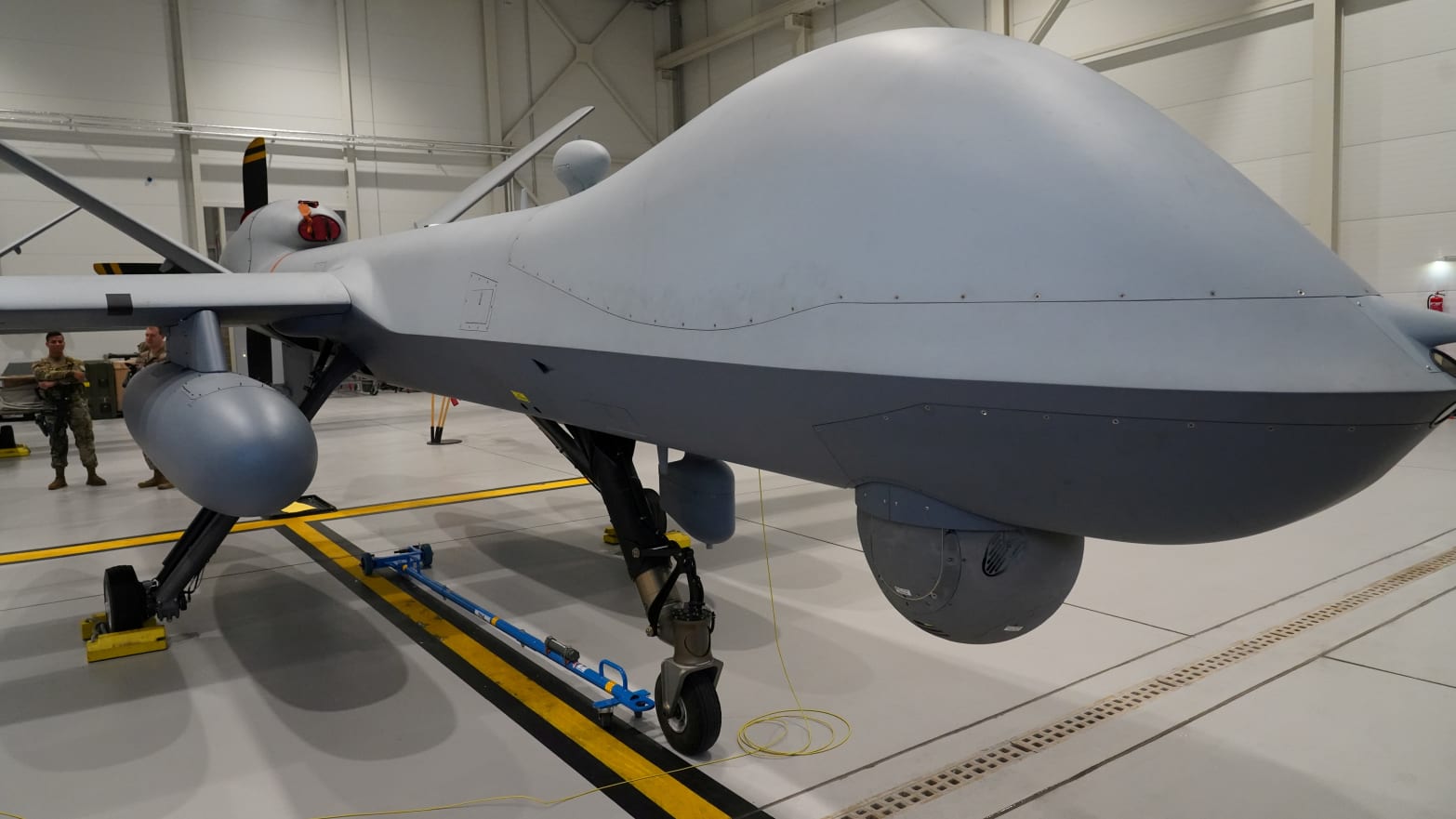Two Russian Su-27 aircraft “conducted an unsafe and unprofessional intercept” of an unmanned U.S. Air Force aircraft over the Black Sea Tuesday, striking its propeller and causing it to crash, U.S. European Command (USEUCOM) announced Tuesday.
The incident led to a “complete loss” of the U.S. MQ-9, an Air Force Intelligence, Surveillance, and Reconnaissance aircraft, Gen. James B. Hecker, the commander of U.S. Air Forces Europe and Air Forces Africa, said.
The commander said the drone was completing routine operations in international airspace when the Russian aircraft conducted the unsafe and unprofessional behavior.
“In fact, this unsafe and unprofessional act by the Russians nearly caused both aircraft to crash,” Hecker said.
The Russian aircraft acted recklessly, pouring fuel over the MQ-9 before eventually hitting its propeller, EUCOM said.
“Several times before the collision, the Su-27s dumped fuel on and flew in front of the MQ-9 in a reckless, environmentally unsound and unprofessional manner,” EUCOM said.
President Joe Biden has been briefed on the incident, National Security Council Coordinator John Kirby told reporters on a call Tuesday.
The incident follows a “pattern” of dangerous behavior from Russian pilots while encountering U.S. and allies’ aircraft in international airspace in a way that could lead to “unintended escalation,” USEUCOM warned. And while Russian aircraft often intercept other aircraft over the Black Sea and there have been several other intercepts in recent weeks, this incident was “unique” in that it forced the United States to have to take down its own aircraft, the White House said Tuesday.
“It’s not uncommon for Russian intercepts of non-Russian aircraft over the Black Sea,” Kirby said. “This one obviously is noteworthy because of how unsafe and unprofessional” it was.
It’s not clear what the Biden administration’s assessment is of Moscow’s intentions in going after the U.S. drone Tuesday, Kirby said.
“If the message is that they want to deter or dissuade us from flying and operating in international airspace, over the Black Sea, then that message will fail… we are going to continue to fly and operate in international airspace over international waters,” Kirby said.
The State Department said Tuesday it will be summoning the Russian ambassador to the department to express “strong objections” to Russia’s behavior, State Department Press Secretary Ned Price told reporters on a call Tuesday. The process of summoning is still ongoing and is expected to take place this afternoon, Price said.
U.S. Ambassador to Russia Lynne Tracy has already conveyed a similar “strong message” to the Russian Ministry of Foreign Affairs.
Russia’s Defense Ministry claimed that its aircraft didn’t come into contact with the MQ-9, according to TASS. Russia blamed the crash on “sharp maneuvering” which led it into “uncontrolled flight, according to TASS. The defense ministry added that Russia did not use airborne weapons against the U.S. drone.
For now, the Biden administration is not clear on whether Russian pilots intended to hit the propeller of the U.S. aircraft, Kirby said.
“As to whether that was the intended outcome by the Russian pilot, that’s a level of detail we just don’t have [in] early hours,” Kirby said.
Moscow’s intentions are still under review, a U.S. European Command and U.S. Africa Command spokesperson told The Daily Beast.
“The incident is currently being investigated,” the spokesperson said.

